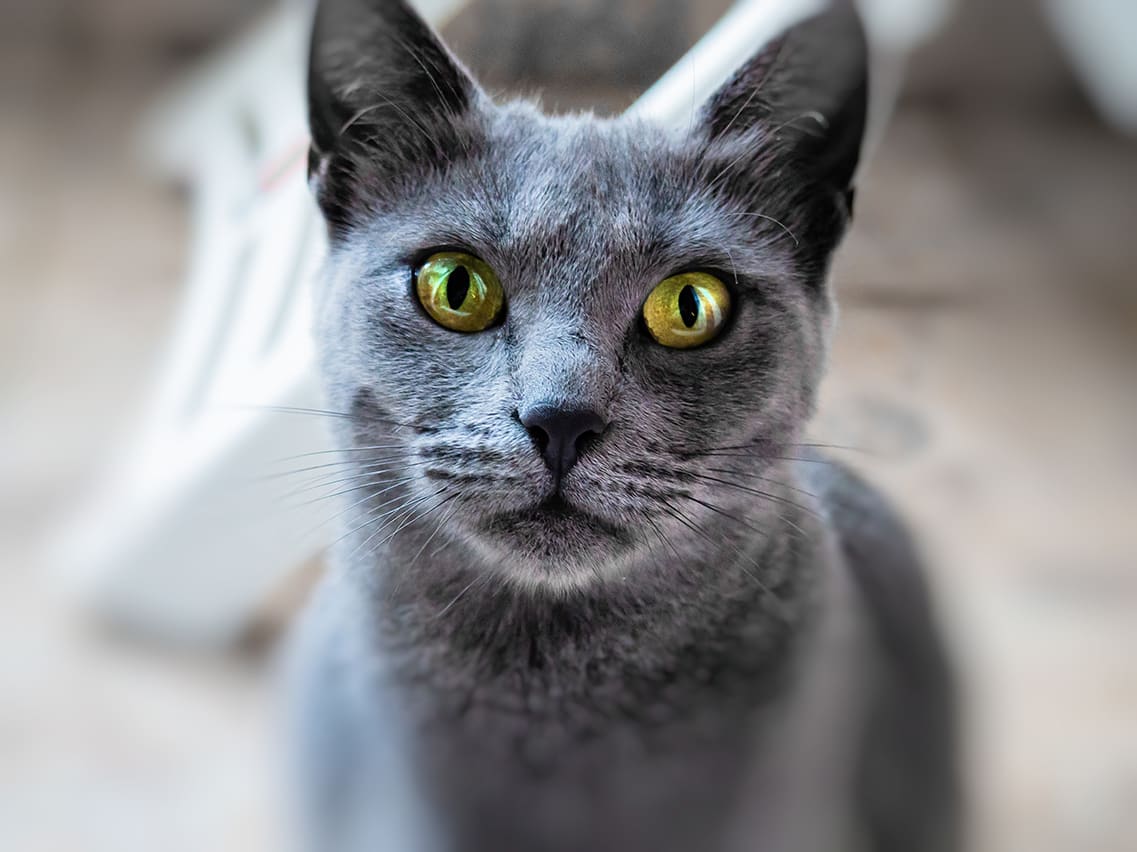What causes pneumonia in cats?
If particular bacteria, viruses, or fungal organisms invade your cat's airways, they can quickly develop into an infection or inflammation which can lead to pneumonia. When a cat develops pneumonia they will experience breathing difficulties and oxygen deficiency in the blood, which can weaken their immune system as well as make them feel very poorly.
While cats of any age can develop pneumonia, it is most often diagnosed in senior cats, cats with other underlying health conditions, or young kittens. There are a number of different types of pneumonia in cat's, caused by different issues:
- Infectious Pneumonia - Infectious pneumonia results from a viral or bacterial infection in the lungs and airways, this is the most common form of pneumonia seen in cats.
- Aspiration Pneumonia - Aspiration pneumonia is caused by the cat inhaling a foreign material, which leads to irritation of the sensitive lining of the lungs. A common cause of aspiration pneumonia in cats is the improper administration of liquid medications, or the inhalation of vomit if the cat is sick.
- Fungal Pneumonia (also called mycotic pneumonia) - Fungal pneumonia begins as a fungal infection which progresses into the development of pneumonia. The inhalation of spores from the soil is believed to be the source of most fungal infections in cats.
- Parasites - In some cases parasites including lungworms and flukes can invade the cat's air passages and result in pneumonia.
How can I tell if my cat has pneumonia?
Cat's are stoic creatures and often hide when they are in pain or feel unwell, making it difficult to detect some of the early signs of the condition. The symptoms of pneumonia in cat's also tends not to be entirely straight forward to detect since many of the symptoms are also associated with other illnesses including other respiratory infections such as cat colds. Nonetheless, if your cat is suffering from pneumonia they may display one or more of the following symptoms:
- Coughing up mucus or blood
- Gurgling or rattling respiratory sounds
- Nasal discharge
- Lack of appetite
- Fever
- Bluish mouth
- Shallow or laboured breathing
- Unusually fast breathing rate
- Persistent coughing
- Lethargy
- Weight loss
- Untidy appearance
If your cat is suffering from aspiration pneumonia they could experience other symptoms as well such as difficulty swallowing, increased heart rate and vomiting.
Fungal pneumonia in cats may also cause eye or skin problems such as lameness, runny eyes and skin lesions.
Is pneumonia contagious to other cats?
Yes, cats suffering from viral or bacterial pneumonia will often pass the infection on to other cats, dogs, and small animals that they come in close contact with.
In order to help prevent the spread of pneumonia, our vets recommend keeping your sick cat separated from other pets in your household. Try keeping your sick cat contained in a comfortable but separate room and provide them with a comfy place to rest, a fresh clean litter box, and plenty of food and water.
Be sure to clean your cat's food and water bowls frequently, as well as their litter box, and toys which may be contaminated. Also, be sure to wash your hands thoroughly after handling your unwell cat to help prevent spreading the disease.
Will my cat recover from pneumonia?
For cat's with pneumonia, treatment typically begins by working to stabilize the cat's condition, then to fight the infection. Based on the severity of your cat's symptoms, treatment may include hospitalization for monitoring, oxygen therapy or a nebulizer treatment to help ease respiratory symptoms. Intravenous fluids may also be administered to treat dehydration, and broad-spectrum antibiotics or anti-fungal medications given to help fight infection.
With treatment, the prognosis is generally good for cat's with pneumonia, however aspiration pneumonia is particularly difficult to treat and can lead to further complications later. The underlying cause of the illness, as well as your cat's overall health, and age will all play a role in how well your cat recovers from pneumonia. Sadly, cats that are very young, very old, or immunocompromised may not be strong enough to battle pneumonia.
If your cat is experiencing difficulties breathing contact our Southeast Memphis vets at Southwind Animal Hospital to book an appointment.

Looking for a vet in Southeast Memphis?
We're always accepting new patients, so contact our veterinary hospital today to book your pet's first appointment.
Related Articles View All
Signs, Causes & Treatments for Ear Mites in Cats
Ear mites cause uncomfortable irritation to a cat's ears and skin, but with diligent care, this parasite is fairly straight forward to treat. Here, we explain how to spot the signs of ear mites in cats and how ear mites can be treated.
Where to Leave a Cat While on Vacation
If you're a cat parent, at some point you are likely to face the dilemma of where to leave your cat when you go on vacation. Today's post offers a few suggestions for you to consider.
Cat Tooth Extractions - A Pet Parent's Guide
If your cat has a damaged or diseased tooth a dental extraction may be required. Today, our Memphis vet dentists discuss the reasons that your cat may need to have a tooth removed and what you can expect if they require tooth extraction surgery.
Why does my cat have diarrhea?
Diarrhea in cats is a common issue seen by our Memphis vets. Here are some of the most common causes of cat diarrhea, as well as advice on when a trip to the vet is called for and how to stop your cat's diarrhea.
